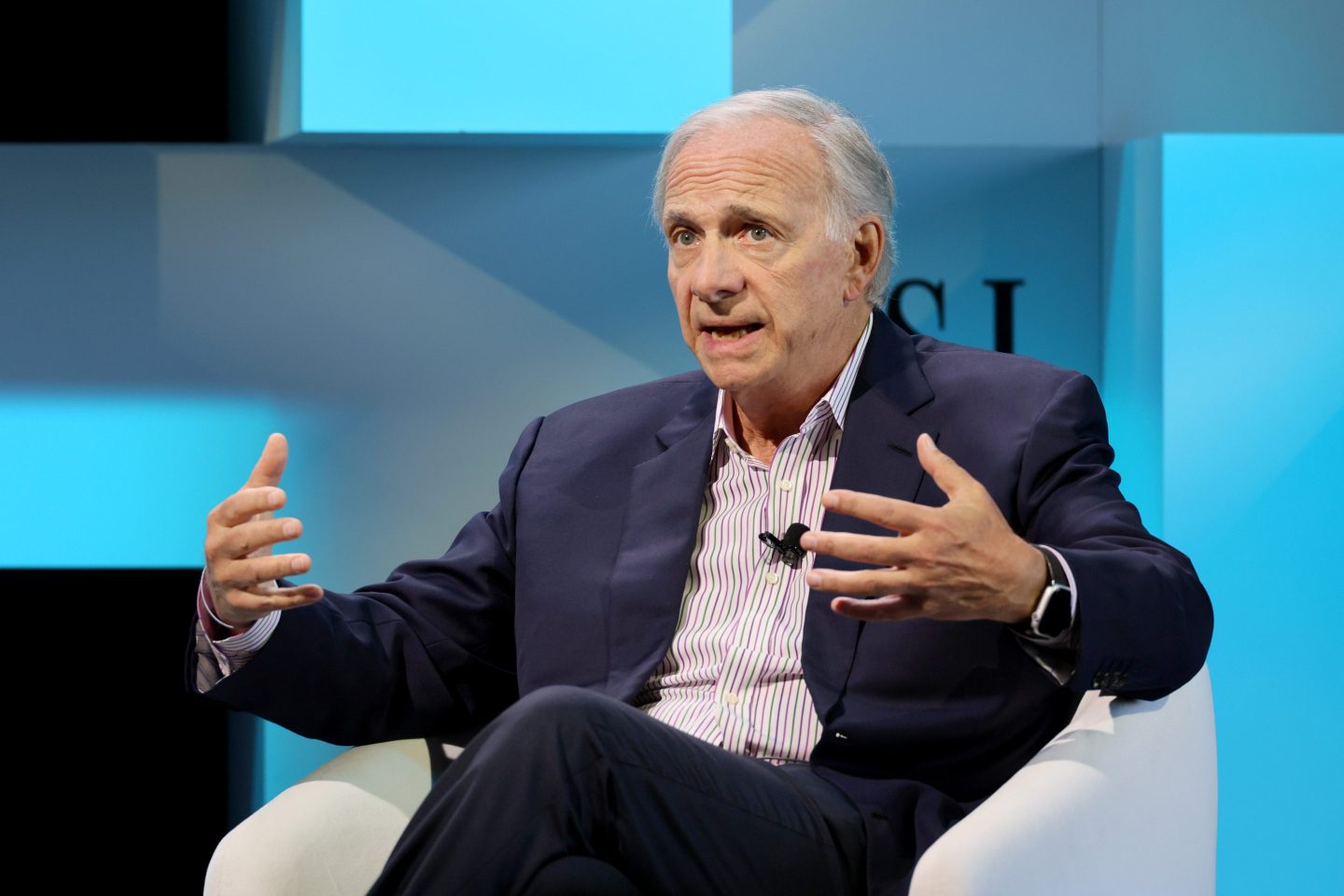- The U.S. must slash its deficit to 3% from an expected 7.5% before the president’s second term in office ends, otherwise bond markets will not be able to absorb the amount of new debt the Treasury issues and a death spiral will ensue, according to Bridgewater hedge fund founder Ray Dalio.
President Donald Trump has no more than three years to slash the fiscal deficit by over half before bond markets plunge the United States into a debt death spiral.
The only question is how much austerity will need to be imposed on everyday Americans already suffering from a cost-of-living crisis versus the vital contributions to productivity that technological advances could bring.
That’s the dire warning issued by billionaire investor Ray Dalio at the World Governments Summit in Dubai on Thursday. He believes the $36 trillion and counting in national debt is effectively plaque building up on the arterial walls of the U.S. financial system.
Unless the Trump administration can persuade bond investors to accept a lower return on their investment that is commensurate with fiscal sustainability, an “economic heart attack” is imminent if continued government profligacy is unaddressed.
“The United States will run a deficit of about 7.5% of GDP if the Trump tax cuts continue, which I expect,” he warned, calling on the White House and Congress to commit to cutting the deficit to 3% of GDP in the next three years.
Fears the bond market can’t soak up the supply
Following Wednesday’s red-hot inflation print, Wall Street no longer expects relief in the form of further interest rate cuts. Yields on benchmark 10-year Treasuries remained above 4.6% amid news that consumer prices increased more than expected in January.
The faster prices rise, however, the higher the premium bond investors will demand to hold fixed-income securities like sovereign debt. This would put further pressure on the share of government spending that must be allocated just to service the growing national debt.
Since bond markets must act like a sponge to keep borrowing costs low, Dalio fears at some point they will no longer be able to soak up the ever-increasing amount of Treasuries issued.
At that point they’ll choke, interest rates will soar, the U.S. will have to borrow more and more money just to pay down fewer and fewer IOUs. At that point the debt death spiral ensues.
“When I calculate the supply and demand over the next year and three years,” said Dalio, “we have an immediate issue.”
U.S. government must move fast—even if it breaks things
White House economic advisor Kevin Hassett revealed on Monday the administration’s plan for getting inflation under control: “increase supply and reduce aggregate demand.”
Barring material advances in output per hour worked, however—e.g., through AI- or robotics-enabled productivity gains—or significantly more overtime, growing the former is harder given Trump’s plans for the largest ever mass deportation of undocumented immigrants.
Therefore Trump will need to achieve that much more of the latter. But lowering aggregate demand is little more than a fancy term for deliberately depressing growth, typically through government spending cuts known as austerity.
Dalio argued the U.S. no longer had the luxury to form a consensus in society over the breadth and scale of the cuts needed to get to a 3% deficit. Time has run short, and now it is an imperative to move fast, even at the cost of breaking things.
Society would then have to see, collectively, what kind of damage ensues and then pick up the pieces afterwards. “Since achieving that must be of paramount importance, you do it,” he said referring to austerity. “Then you find out what’s tolerable.”













